Questões de Língua Inglesa do ano 2006
Lista completa de Questões de Língua Inglesa do ano 2006 para resolução totalmente grátis. Selecione os assuntos no filtro de questões e comece a resolver exercícios.
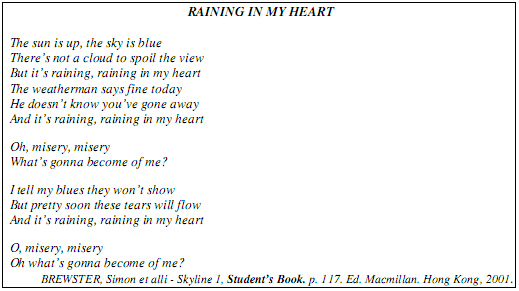
Is the person happy or sad in the poem?
- A.
He is sad.
- B.
He is not sad.
- C.
He is happy
- D.
He is happy or sad.
- E.
He is becoming happy
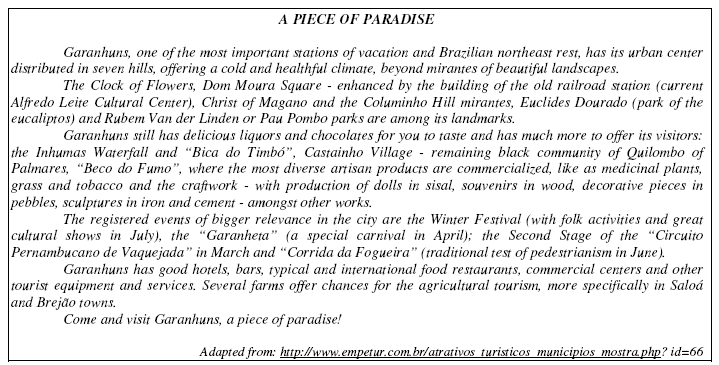 What's the weather like in Garanhuns?
What's the weather like in Garanhuns?
- A.
Hot
- B.
Sunny
- C.
Cloudy
- D.
Windy
- E. Cold and healthful
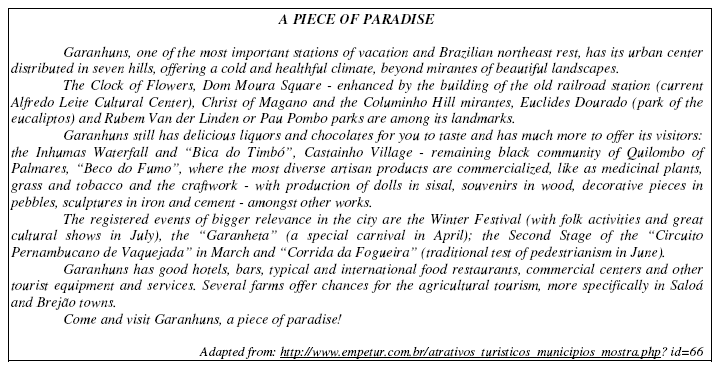
Where can visitors buy craftwork in Garanhuns?
- A. In "Beco do Fumo"
- B. At Dom Moura Square.
- C.
In Inhumas Waterfall.
- D.
Around the Clock of Flowers.
- E.
In Castainho Village
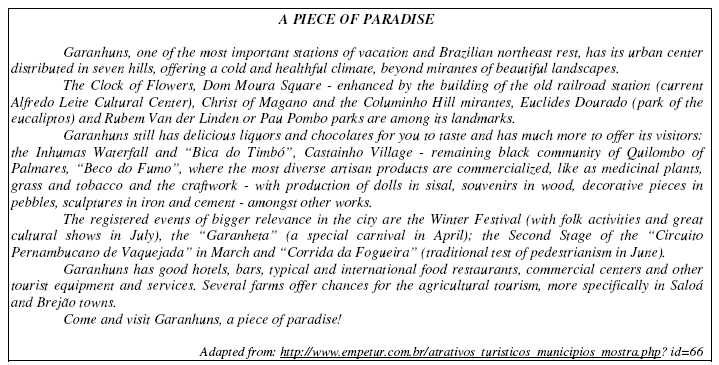
What farms offer agricultural tourism?
- A.
Saloá
- B.
Brejão
- C.
Saloá and Brejão
- D.
Downtown.
- E.
Garanhuns.
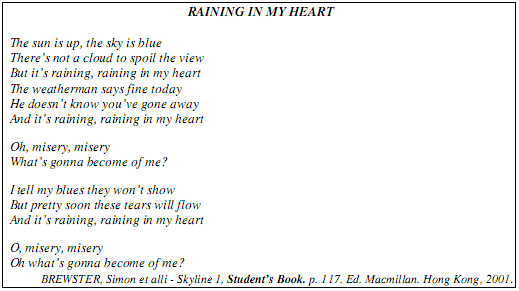
Why is the person suffering? Because ______.
- A.
the sun is up
- B.
the sky is blue
- C.
someone he loves has gone away
- D.
the weatherman says fine today
- E.
it's raining in my heart
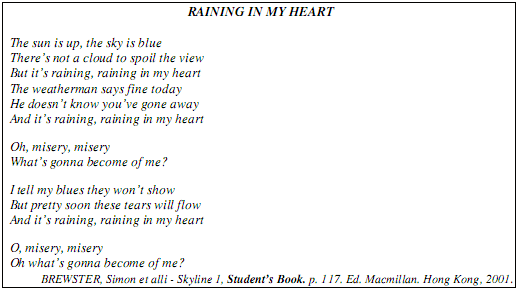 What does "raining in my heart" in the poem mean? It means ______.
What does "raining in my heart" in the poem mean? It means ______.
- A.
it is winter
- B.
the person is very sad
- C.
it is a rainy day
- D.
it is cloudy and rainy
- E.
the person is feeling well
Observe o texto abaixo, considerando-o para as questões de 21 a 27.
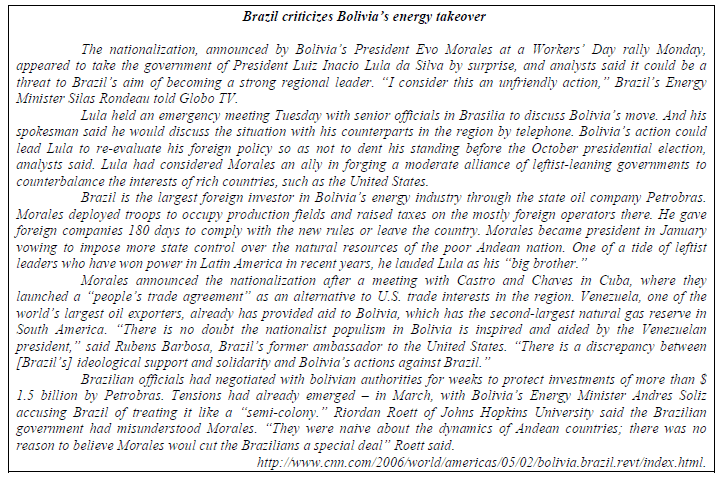
In the text above, the words "analysts", "leader", "meeting", "spokesman" and "policy" can mean "analistas', "líder", "reunião", "porta-voz" and "política". In this case, the student is showing
- A.
interpretation.
- B.
vocabulary translation.
- C.
comprehension of discussion questions.
- D.
knowledge of all the English vocabulary.
- E.
text comprehension.
Observe a seqüência de eventos descritos no texto abaixo. Este é seguido de uma lista de eventos numerados e de um conjunto de alternativas sobre a ordem em que eles ocorreram. Escolha a alternativa correta, de acordo com o texto.
"It's almost evening. Jane has just moved. Before moving she talked to all her neighbors. She bought this new apartment a month ago. A week after buying it she rented a truck to bring all her furniture. She's very tired now, but she's very happy too.
1. Jane has just moved.
2. Jane talked to neighbors.
3. Jane bought a new apartment.
4. Jane rented a car.
5. Jane is tired, but happy. A seqüência de ocorrência de eventos é
- A. 3, 4, 2, 1, 5.
- B.
5, 1, 2, 4, 3.
- C.
4, 2, 1, 3, 5
- D.
1, 2, 4, 5, 3.
- E.
1, 2, 3, 4, 5.
Ao citar o que denomina de processo de "desestrangeirização" da língua, Almeida Filho quer afirmar que
1. a "desestrangeirização" está relacionada à língua materna.
2. a língua materna não é estrangeira.
3. à medida que o aprendiz vai se familiarizando com a língua estrangeira, ela vai se "desestrangeirizando".
4. a "desestrangeirização" se refere à aprendizagem de novas línguas.
5. existe hegemonia da língua estrangeira sobre a língua materna.
Está(ão) correta(s)
- A.
apenas a 2.
- B.
apenas a 5.
- C.
apenas 3 e 4.
- D.
apenas a 2 e 5.
- E. apenas a 3.
MTV is one of the most popular television networks in the world. People love MTV not only because of its music videos, but also because of its clever and diverse programming. Since it keeps its shows up-to-the-minute, young people watch MTV for the latest fads in music and fashion. The subject of the text is
- A. music
- B. violence
- C. peace
- D. love
- E. television


